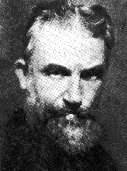 Bernard
Shaw, born in Dublin in 1856, was essentially shy, yet created the
persona of G.B.S., the showman, controversialist, satirist, critic,
pundit, wit, intellectual buffoon and dramatist. Commentators brought a
new adjective into the English language: Shavian, a term used to embody
all his brilliant qualities. Bernard
Shaw, born in Dublin in 1856, was essentially shy, yet created the
persona of G.B.S., the showman, controversialist, satirist, critic,
pundit, wit, intellectual buffoon and dramatist. Commentators brought a
new adjective into the English language: Shavian, a term used to embody
all his brilliant qualities.
After
his arrival in London in 1876 he became an active Socialist and a
brilliant platform speaker. He wrote on many social aspects of the day:
on Commonsense about the War (1914), How to Settle the Irish
Question (1917), and The Intelligent Woman's Guide to Socialism
and Capitalism (1928). He undertook his own education at the British
Museum and consequently became keenly interested in cultural subjects.
Thus his prolific output included music, art and theatre reviews which
were collected into several volumes: Music In London 1890-1894 (3
vols., 1931); Pen Portraits and Reviews (1931); and Our
Theatres in the Nineties (3 vols., 1931). He wrote five novels and
some shorter fiction including The Black Girl in Search of God and
some Lesser Tales and Cashel Byron's Profession. |
He conducted a strong attack
on the London theatre and was closely associated with the intellectual
revival of British theatre. His many plays fall into several categories:
'Plays Pleasant'; 'Plays Unpleasant'; comedies, chronicle-plays, 'metabiological
Pentateuch' (Back to Methuselah, a series of plays) and
'political extravaganzas'. G.B.S. died in 1950.
From:
http://www.imagi-nation.com/moonstruck/clsc18.html
|

